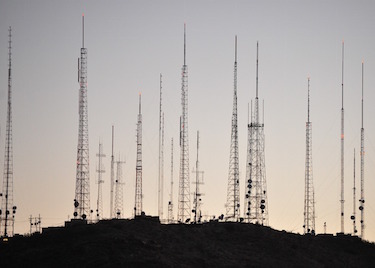Tag: FCC
FCC reps tell CPB board of growing interest in spectrum auction
WASHINGTON, D.C. — An increasing number of public broadcasters have been contacting the FCC in recent weeks for information about participating in ...Auction delay allows time to think hard about selling spectrum
Selling or keeping spectrum is perhaps the most consequential decision that the current generation of public television station executives and their boards ...Wednesday roundup: Ashbrook takes leave; BBC offers new morning module
Plus: Texas Tribune looks to the next five years, and the FCC fines a Massachusetts college.FCC dismissal of indecency complaints clears way for renewal of pubcasters’ licenses
Pubcasters Louisiana Public Broadcasting, Twin Cities Public Television and KCOS-TV in El Paso, Texas, were among the almost 700 broadcasters whose licenses ...Appeal to protect public TV’s translators gets little traction with FCC
Pubcasters fear that hundreds of translators could be threatened by the spectrum auction planned for next year.Public radio organizations weigh in on FCC public file proposal
A proposal to require noncommercial radio stations to disclose program funders and share other public file records online has prompted widely varying ...FCC report aims to play up payout from spectrum auction
An FCC-sponsored report projecting huge potential paydays for television broadcasters in next year’s spectrum auctions could prompt public TV licensees to reconsider ...Monday roundup: PBS yanks Harper’s ads, Minnesota station goes mobile
Also: Podcasting starts turning a profit.Monday roundup: Google Glass users can hear WBUR; Radiolab does hands-on journalism
Plus: the FCC's to-do list grows, and podcast listening rivals radio among some consumers.In maintaining towers, stations face higher costs, lack of space
If any part of the broadcast plant ever merited the label “necessary evil,” a top nominee would be the tower. Expensive to maintain, ...Public TV organizations ask FCC to protect noncoms when repacking spectrum
Three national public broadcasting organizations are asking the FCC to change its spectrum auction rules to ensure that channel repacking leaves no ...In historic first, LA pubTV stations agree to share spectrum for auction proceeds
Pubcasters KCETLink and KLCS in Los Angeles have agreed to participate in the upcoming FCC spectrum auction through a channel-sharing partnership that ...Private equity gobbling up public TV stations: what does the public get?
Public stations in Connecticut and San Mateo may be at the leading edge of a mass sell-off of public media assets in next year’s ...Monday roundup: FCC may require online public files for radio stations; Burton hosts “Tweeting Rainbow”
Plus: Paula Kerger takes her interns to breakfast, and Planet Money hops on Reddit.Changes to FCC rules ease requirements for tower owners, tenants
Pubcasters who own broadcast towers are about to get regulatory relief thanks to a FCC decision that closes the books on a ...




